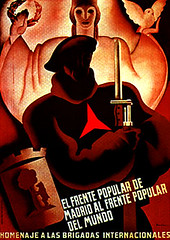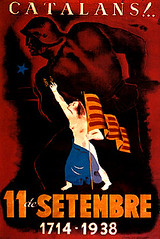The Week That Was
Bush's press conference is striking in this regard, as is the press coverage more generally: as though reeling under a mutli-pronged assault, there is a reflexive, allergic reaction to not really registering this stunning blow. As though this election has nothing to do with the War in Iraq (or the "War on Terra"), as though we're not even at War. The Hamas election, in fact, gives the lie to so many of the basic rhetorical constructions that prop up Bush's Iraq War that it can almost not be seen at all. Either this is simply an event that happens to the United States, something out there which, like a hurricane, blows in onto the press that is covering it, from the U.S., and has nothing to do with the United States itself, or, even more radically, as Bush suggested several times in his initial statements, its not really an event at all. Besides there's too many other things going on. "But if nothing else, legal and political analysts say, Bush administration officials appear to have succeeded in framing the legal debate on their own terms and daring critics of the National Security Agency operation to prove them wrong. 'It's a very astute strategy," said Peter J. Spiro, a law professor at the University of Georgia. "They don't have much to work with legally, but they're framing these justifications in constitutional terms to a public audience. That may serve them well.'"
As we know, this particular rhetorical jijitsu was not only conceived but actively avowed by Karl Rove last Friday, whose speech now reads as a diestic prequel to the Week That Would Be. "On Friday, the Justice Department capped the week's blitz with a 27-point rebuttal to its critics labeled 'Myth V. Reality.' The first 'myth' listed: 'The N.S.A. program is illegal.'" The third lie, is, of course, Abramoff, dramatized so remarkably in the crazy events at the Washington Post, whose ombudsman (of all people) was caught at the precise moment of alchemical transformation: between hard lie (Abramoff gave money to both parties) and soft (Abramoff directed money to both parties, still, of course, patently untrue -- but untrue more deeply in the insidious way it shifts, or begins to lose sight of, the very essential terms of the news story itself).
Hamas, NSA, Abramoff: is there any doubt that we are still livng in Rove's world, where the truth is not merely hidden but somehow metastasized into an even bigger lie (not only did Abramoff not really *happen*, he gave money to the Democrats as well; not only is the shocking victory of Hamas unrelated to the Iraq War, it offers us democracy in action; not only is extra-legal wiretapping not illegal, but those who passed these laws are themselves criminals, seeking to endanger you). It makes you wonder what the State of the Union would look like if the four corners of Fitzgerald's investigation had been just a little bit wider.

